GT-POWER TRAINING
Engine Performance Analysis
Gamma Technologies, Inc.
All information contained in this document is confidential and cannot be reproduced or
transmitted in any form or by any means, electronic or mechanical, for any purpose, without
the express written permission of Gamma Technologies, Inc.
1
�
GT-POWER Content (Basic)
• GT-POWER Applications
• Solution Method
• Discretizing a Model
• Orifice Connections
• Pipes
• Cylinder Ports
• Valves
Injection
In-Cylinder Heat Transfer
•
•
• Combustion
• Cylinder Pressure
Analysis
• Flow Splits
• Convergence
2
• Advanced Topics
�
GT-POWER Content (Advanced)
• Pipe Equations (ref)
• Turbochargers
• Heat Exchangers
• SI Fuel Puddling Model
• EGR
• SI Turb Model
• DI Jet Model
• Exhaust Aftertreatment
• Acoustics (Non-linear)
• Acoustics (Linear)
• Model Correlation
• Transient Simulation
• 3-D Combustion (KIVA)
• Mean Value / Real Time
• CFD Coupling
3
• Basic Topics
�
GT-POWER Applications
4
�
Benefits Of Simulation
• Saves Time and Money
– Shortened development cycle
– Reduces number of prototypes required
– Optimization of design with minimal prototyping and
laboratory testing
• Excels Where Traditional Methods Lack
– Proof of concept
– Validation and sensitivity studies
– Component matching when no hardware yet available
– Analysis of stubborn performance problems
– Simulation of unusual ambient conditions: composition,
temperature, pressure
5
�
Model Fidelity
x Real Time
1000
100
10
1
0.1
CPU Time
vs. Model
Type
3-D CFD (KIVA)
1-D Gas Exchange
(GT-POWER)
1-D Mean Value Model
(GT-POWER)
Real-Time Models
(controls modeling)
Black Box Models
Model Detail
6
Original Figure provided by FEV
�
GT-POWER Applications
• Engine performance analysis
• Based on 1-D fluid dynamics
• Very flexible, to allow studies
of advanced concepts
• Detailed thermodynamics
• Many combustion & emissions
models
• Thermal analysis
• Acoustics
• Engine control analysis via
SIMULINK
• CFD flow analysis via
STAR-CD, fluent and KIVA
7
�
Solution Method
8
�
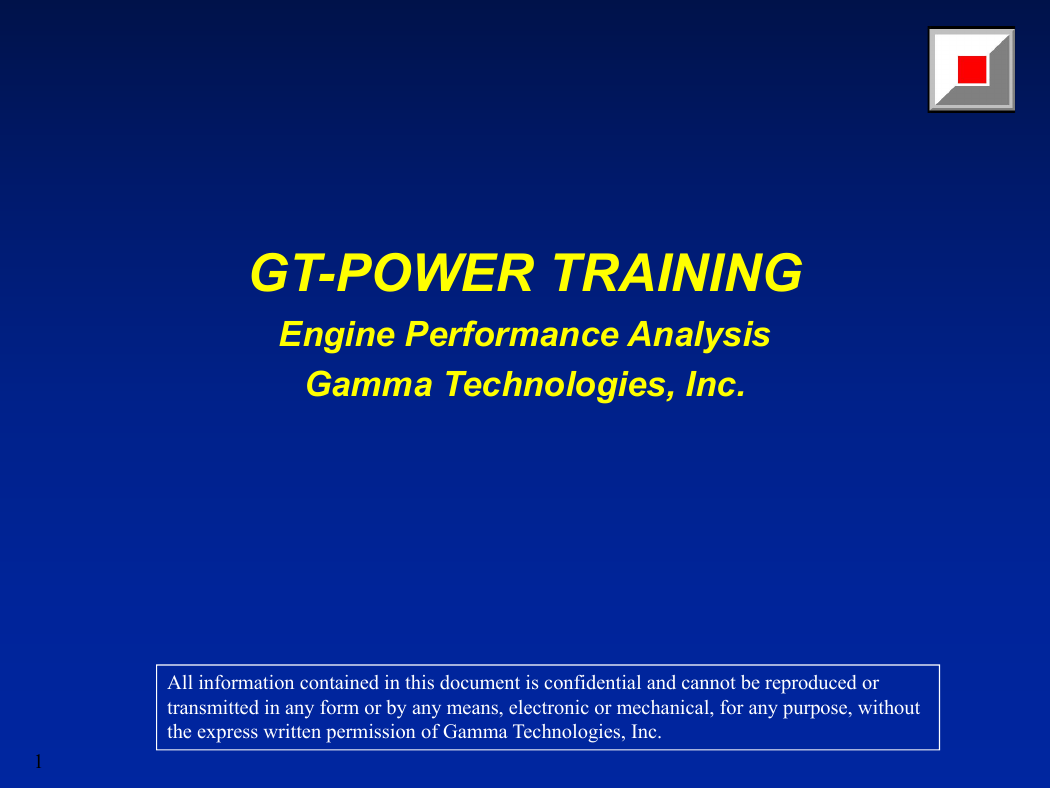
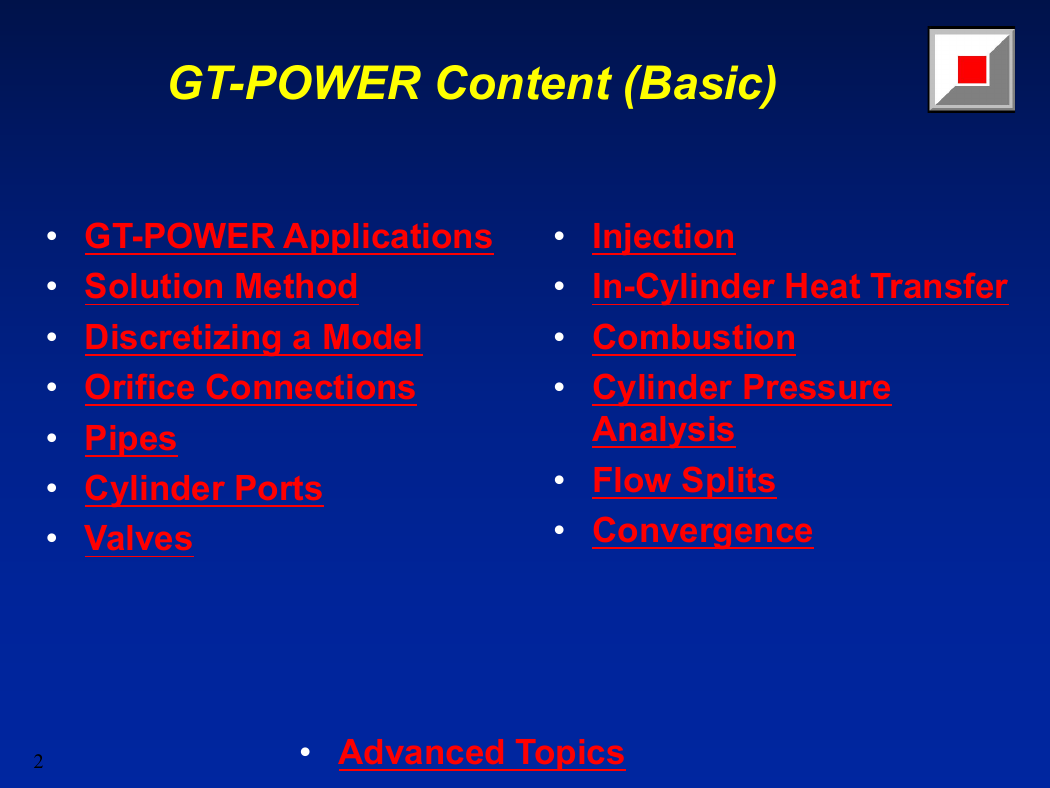
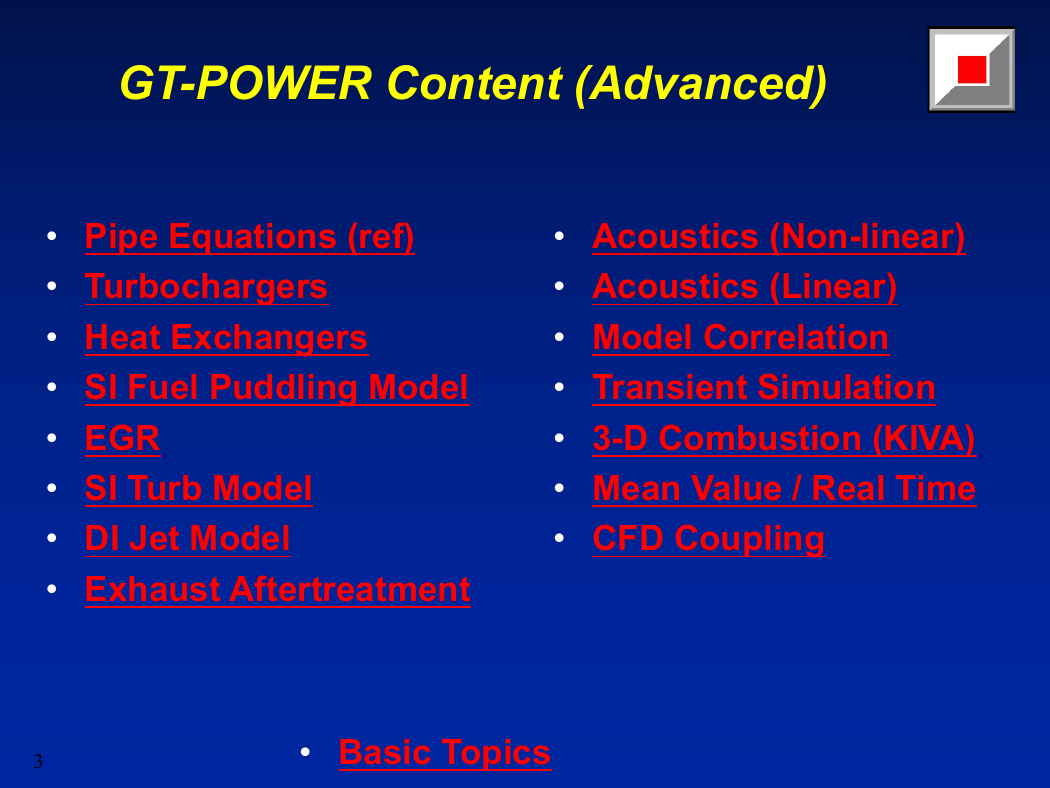
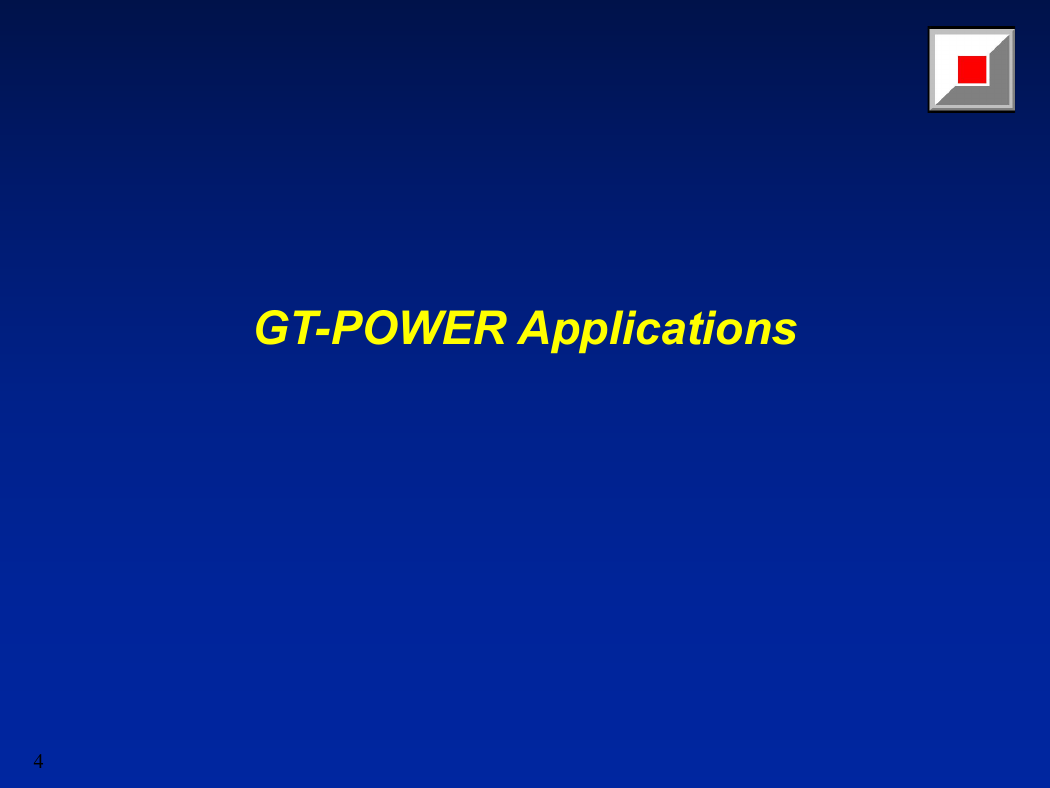

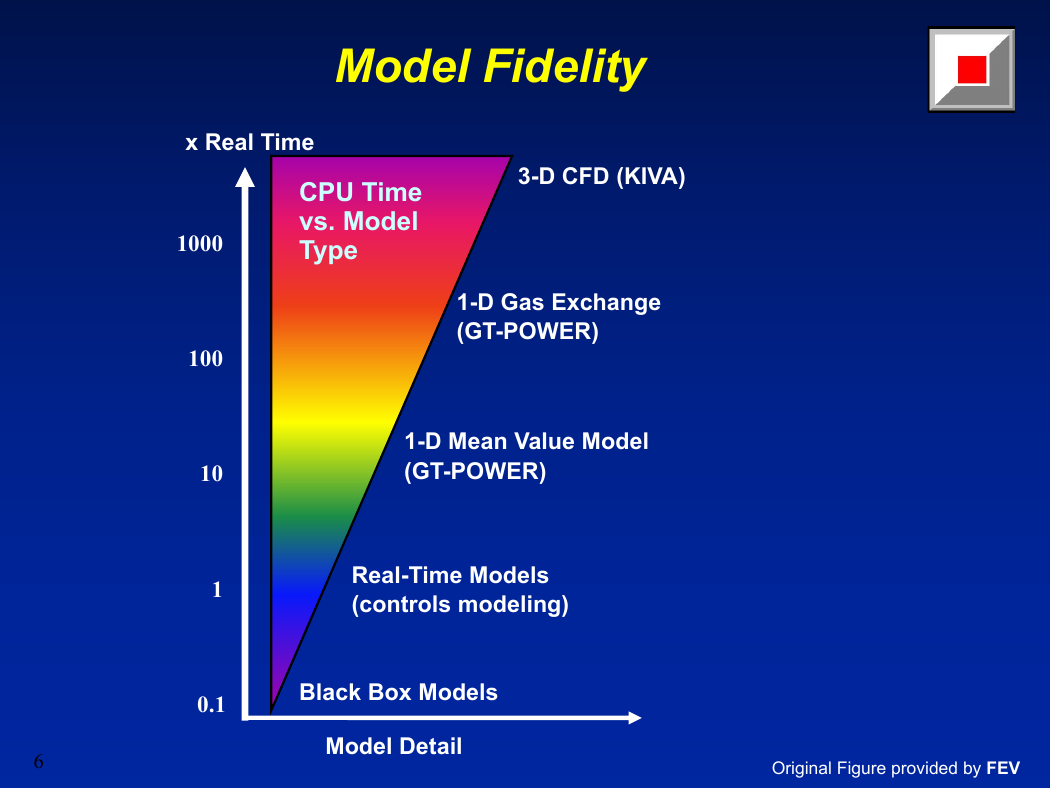
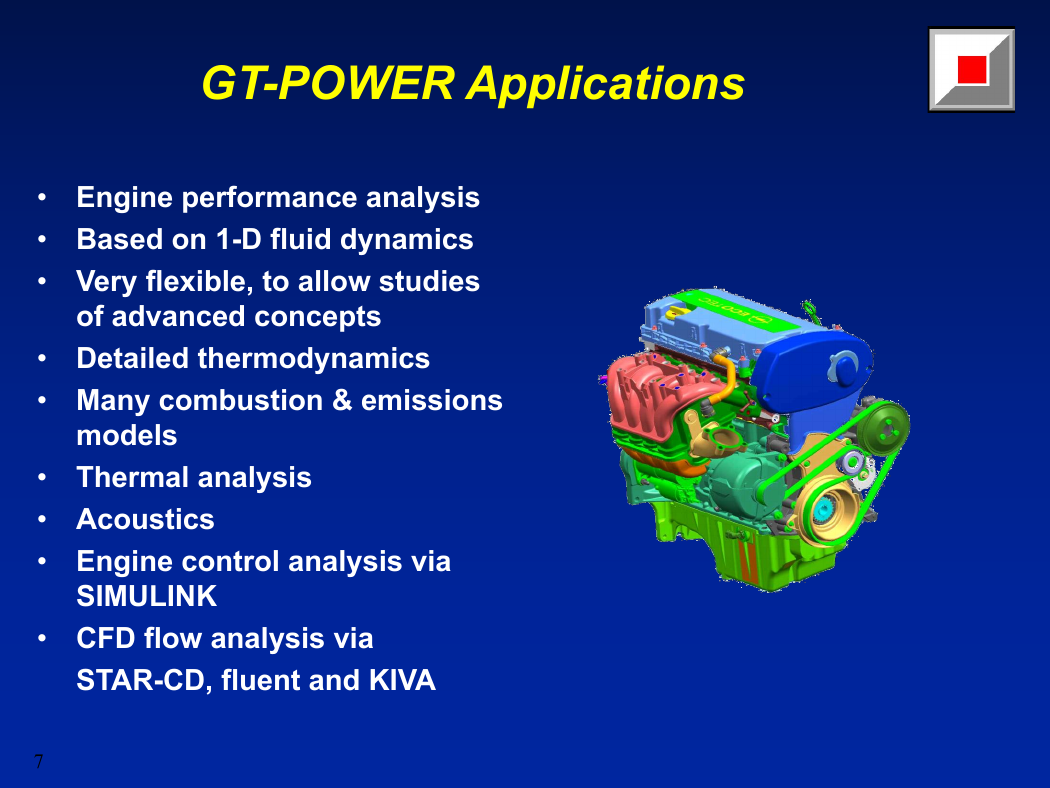
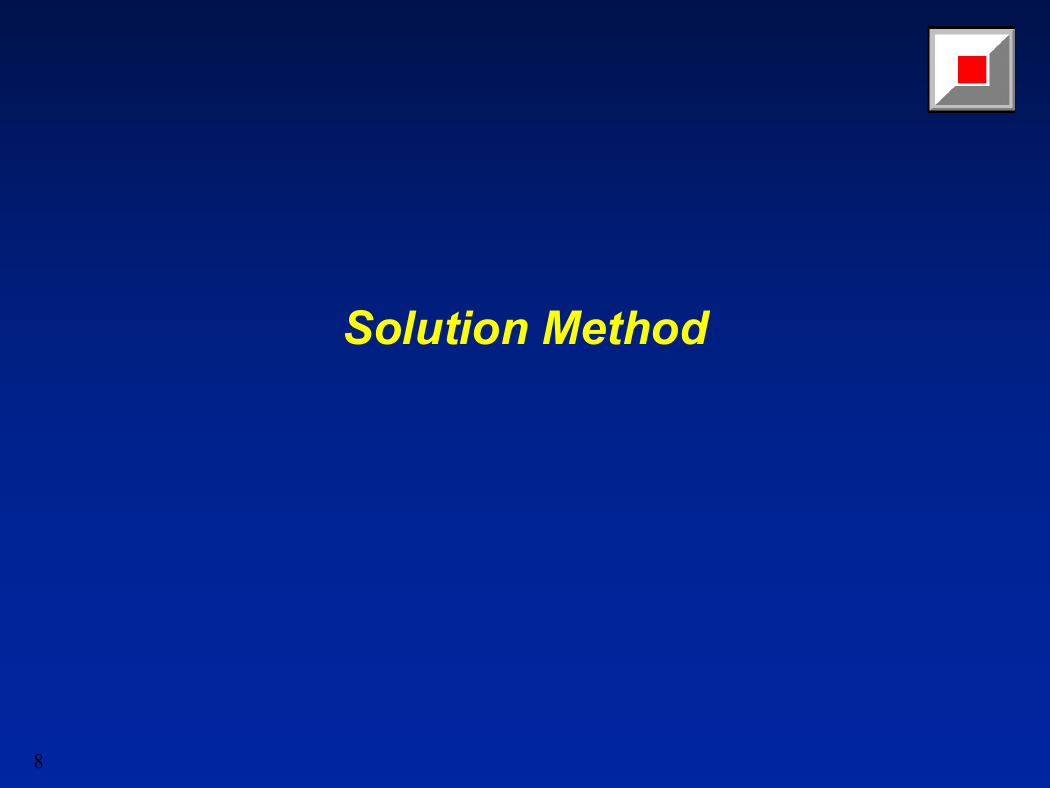








 2023年江西萍乡中考道德与法治真题及答案.doc
2023年江西萍乡中考道德与法治真题及答案.doc 2012年重庆南川中考生物真题及答案.doc
2012年重庆南川中考生物真题及答案.doc 2013年江西师范大学地理学综合及文艺理论基础考研真题.doc
2013年江西师范大学地理学综合及文艺理论基础考研真题.doc 2020年四川甘孜小升初语文真题及答案I卷.doc
2020年四川甘孜小升初语文真题及答案I卷.doc 2020年注册岩土工程师专业基础考试真题及答案.doc
2020年注册岩土工程师专业基础考试真题及答案.doc 2023-2024学年福建省厦门市九年级上学期数学月考试题及答案.doc
2023-2024学年福建省厦门市九年级上学期数学月考试题及答案.doc 2021-2022学年辽宁省沈阳市大东区九年级上学期语文期末试题及答案.doc
2021-2022学年辽宁省沈阳市大东区九年级上学期语文期末试题及答案.doc 2022-2023学年北京东城区初三第一学期物理期末试卷及答案.doc
2022-2023学年北京东城区初三第一学期物理期末试卷及答案.doc 2018上半年江西教师资格初中地理学科知识与教学能力真题及答案.doc
2018上半年江西教师资格初中地理学科知识与教学能力真题及答案.doc 2012年河北国家公务员申论考试真题及答案-省级.doc
2012年河北国家公务员申论考试真题及答案-省级.doc 2020-2021学年江苏省扬州市江都区邵樊片九年级上学期数学第一次质量检测试题及答案.doc
2020-2021学年江苏省扬州市江都区邵樊片九年级上学期数学第一次质量检测试题及答案.doc 2022下半年黑龙江教师资格证中学综合素质真题及答案.doc
2022下半年黑龙江教师资格证中学综合素质真题及答案.doc